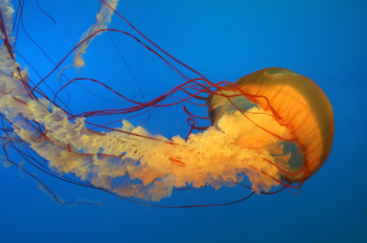How Does Aquaculture Affect the Environment?
Aquaculture is rapidly reshaping the world’s seafood supply, but what does this mean for our oceans, coastlines, and aquatic ecosystems?
4 min read
 Manoj Dadlani
:
May 30, 2025 5:28:21 AM
Manoj Dadlani
:
May 30, 2025 5:28:21 AM

From climate change and conservation to food security and human health, some of today’s most pressing global challenges are being tackled through an unexpected yet powerful tool: aquaculture research.
While commonly associated with seafood production, aquaculture is fast becoming a vital platform for scientific research. Across disciplines, researchers are turning to aquaculture to better understand ecosystems, test sustainable innovations, and develop biomedical solutions.
In this article, we explore why aquaculture is increasingly seen as a key component of modern research and how platforms provided by research partners like Cmbio are supporting these important discoveries.
Aquaculture refers to the breeding, rearing, and harvesting of aquatic organisms in controlled environments. It spans a variety of systems, including:
While traditionally driven by commercial seafood production, aquaculture is now widely used in scientific research. This distinction between production and research aquaculture is crucial. Research-focused systems are designed not for high-yield output, but for replicable experiments, species monitoring, and controlled ecosystem studies.
Aquaculture research usually involves the scientific study of cultivating aquatic organisms such as fish species, shellfish, and aquatic plants in controlled environments. Unlike commercial fish farming, which focuses on producing food for human consumption, research-based aquaculture is designed to answer questions about fish health, environmental change, sustainable production, and ecosystem dynamics.
Aquaculture offers a unique blend of control and realism, making it ideal for environmental and biological studies. Researchers can create replicable experimental conditions that are otherwise difficult to achieve in open-water settings. Some key benefits include:
Get started with Cmbio’s aquaculture microbiome research services
Aquaculture systems are increasingly used to model the impacts of environmental stressors such as ocean acidification, temperature fluctuations, and pollution. These controlled systems help researchers understand how climate change affects aquatic ecosystems and identify mitigation strategies.
Moreover, aquaculture facilities allow for ongoing water quality monitoring, which not only aids research but also informs conservation policies. Studies on habitat restoration and the restocking of endangered species, such as native shellfish and corals, benefit immensely from aquaculture-based insights.
Aquatic species like zebrafish and shellfish are widely used as model organisms in genetics, toxicology, and disease research. Aquaculture provides the consistent and controlled environment necessary for these studies.
One major application is in vaccine development and disease management for aquaculture species, work that has growing implications for public health. For instance, insights into aquatic microbiomes have led to a better understanding of zoonotic diseases and environmental reservoirs of antibiotic resistance.
Research has also looked into the effects of aquaculture on antibiotic resistance, noting that the aquaculture industry’s role in propagating antimicrobial resistance must be addressed, due to the amount of antibiotics used to keep farmed fish free of disease.
Scientific studies in aquaculture help improve responsible aquaculture practices that reduce waste, protect wild populations, and enhance the efficiency of fish farming. The Food and Agriculture Organization (FAO) recognises aquaculture as a vital component of future food systems. When designed with best-practice biosecurity and siting, many modern marine farms can meet high environmental and welfare standards.
Aquaculture plays a vital role in testing and refining new technologies, such as AI-powered sensors, remote monitoring systems, and automated feeding tools. These innovations improve both the efficiency and sustainability of aquaculture operations and are often adaptable to other environmental research contexts.
Research aquaculture also supports development of alternative feeds, such as insect-based or algae-based protein, and closed-loop systems that minimise waste and environmental impact. This field thrives at the intersection of biology, engineering, and data science.
At the frontier of aquaculture science, Cmbio provides researchers with robust, high-quality sequencing and bioinformatics services for both animal and environmental samples from aquaculture systems. These samples are used for microbiome sequencing, environmental DNA analysis (eDNA), antibiotic resistance screening, and health diagnostics, empowering research that informs global policy, sustainability, and medicine.
Whether you're investigating climate resilience in marine species or developing next-gen disease treatments, aquaculture research is a foundational tool – and Cmbio is here to support your scientific journey. Enquire now to find out more.
Explore our aquaculture microbiome research services today
While both use similar systems, the goals are different. Commercial fish farming is part of the aquaculture industry, aimed at meeting the growing demand for seafood and supporting the global food supply, whereas aquaculture research is focused on scientific discovery, testing sustainable aquaculture methods, monitoring the effects of climate change, and developing alternatives to fishmeal and fish oil. The outcomes often inform responsible aquaculture practices used in the industry.
Aquaculture research helps aquaculture producers improve fish welfare, reduce fish waste, and develop sustainable aquaculture feed for both marine and freshwater farming. By advancing techniques in salmon farming, shellfish farming, and the cultivation of juvenile fish and other aquatic species, research supports the shift from capture fisheries to more efficient farming practices that benefit local communities and protect marine organisms.
Marine aquaculture research helps reduce pressure on wild fish stocks and wild fisheries by improving sustainable ways to produce food without further damaging wild populations. It also supports conservation efforts by studying the reintroduction of endangered species and restoring aquatic ecosystems in coastal marine waters.
Researchers often work with farmed fish like salmon, trout, and tilapia, as well as shellfish such as oysters and mussels. Aquatic plants, like seaweed and algae, are also widely studied due to their role in carbon absorption and nutrient cycling. These farmed species serve as models for investigating breeding, disease resistance, and environmental resilience.
Aquaculture research not only strengthens the global aquaculture production pipeline but also supports coastal communities by informing policies, improving yields, and ensuring long-term viability. As the demand for seafood continues to rise, research ensures that both food fish and ecosystems are protected through sustainable aquaculture strategies.

Aquaculture is rapidly reshaping the world’s seafood supply, but what does this mean for our oceans, coastlines, and aquatic ecosystems?

Environmental DNA (eDNA) sampling for species identification has revolutionized biodiversity monitoring by enabling highly accurate, cost-effective,...

The human skin microbiome is an intricate ecosystem teeming with skin microorganisms such as bacteria, fungi, and viruses. These tiny inhabitants...